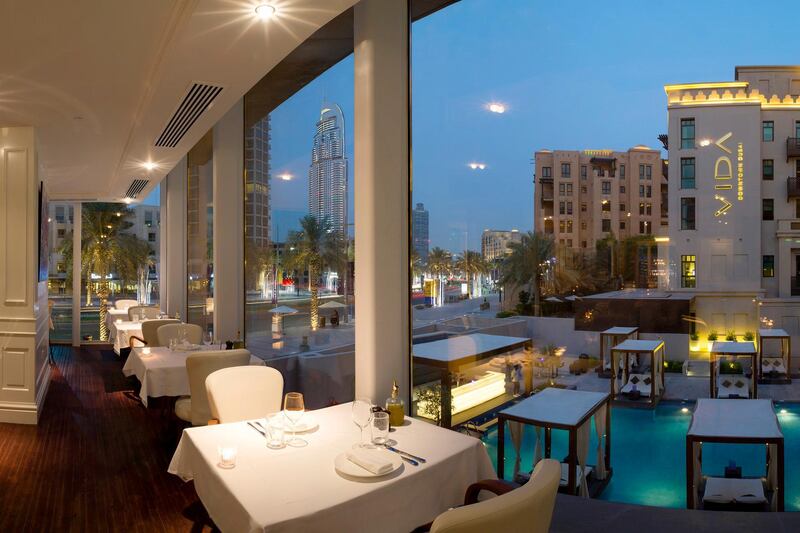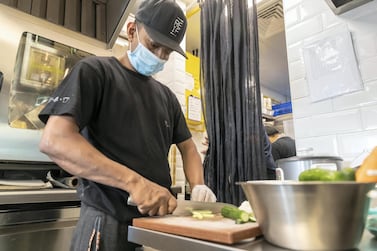The restaurant industry has been hit hard by the coronavirus. As governments around the world imposed lockdowns and told people to stay at home, restaurants were forced to close their doors and many will never reopen.
Thankfully, the UAE’s dining scene is getting back on its feet, and while some have been lost along the way, the majority of the country’s restaurants are back in business.
But there’s another problem plaguing the industry that has only been highlighted by the current crisis: no-show bookings. When you are operating at a lesser capacity and trying to make up for more than three months of unexpected closure, a flurry of missed reservations can be the difference between staying afloat or going under.
Over the past few weeks, some of the world's top chefs have spoken out about the issue. Television chef Tom Kerridge, whose UK restaurant The Hand and Flowers holds two Michelin stars, branded people who book tables at restaurants and do not turn up "selfish". In an Instagram post, he said: "You are the worst kind of guest … I hope you have a good look at yourselves.
“Your behaviour is disgraceful, shortsighted and downright unhelpful. You are putting people’s jobs more at risk.”
Chef and TV presenter James Martin also highlighted the "ongoing problem" in an interview with British television show This Morning, saying it is something that needs to be addressed across the industry.
In the UAE, it is something many restaurants have to grapple with. "It's frustrating to begin with, but especially during these times when we are running at a limited capacity and we block reservations. To not have those people show up has a massive effect on the business," says Brian Voelzing, group executive chef at Lincoln Hospitality, which oversees La Serre, The Loft at Dubai Opera, Distillery and Taikun.
At Downtown Dubai gastropub Distillery, for example, the Friday brunch is currently permitted to serve 42 guests, and if 10 of those don’t turn up, that’s a large chunk of business that the restaurant has missed out on.
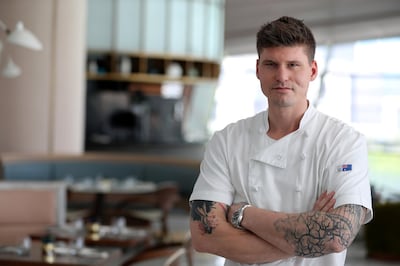
“We try to engineer the menus in such a way where we don't have wastage. But if you think you’ve got 42 people coming in for brunch and you're preparing food platters and 42 don't turn up, then you are left with extra food,” Voelzing says.
“If you think you're going to be busy, you're going to have staff either need to work overtime, or you're bringing extra staff in when they may not be needed. It’s not very fair to the business or to the staff.”
The policy at Distillery and all the restaurants Voelzing oversees is to call ahead to reconfirm a booking, but even that step doesn’t prevent people from having a last-minute change of plan. “Sometimes people don't answer. Sometimes they confirm and still don't turn up,” he says. “Of course I realise that there are always going to be situations where emergencies come up and people can't make it, that's completely understandable.
"But if they haven't turned up 15 minutes after the booking and we do call and they say, ‘Oh, we've decided to go somewhere else’, that’s when it becomes frustrating. You think people would have the courtesy to just call at least an hour ahead and let us know.”
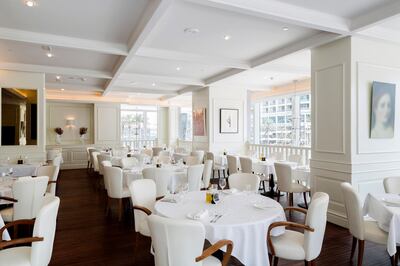
What can restaurants do to prevent this from happening? It’s the age-old question that many have asked, but few actually have the answer to. Restaurants generally take reservations on good faith alone, and wish to keep it that way, but there are a growing number in the business, such as Kerridge, who believe the only way to stop no-show bookings is to take payment in advance.
"I do think we are moving towards a marketplace where there will be a lot more in the way of credit card details being taken, very similar to if you book tickets for the theatre or cinema or an airline," he told Sky News.
Some places in the UAE already do this, for instance, Greek restaurant Avli by Tashas requires credit card details for tables of four or more, and will charge Dh100 per person for a late cancellation or no-show.
However, it's a system Voelzing believes could alienate customers. “A lot of restaurants in other areas do [take credit card details in advance], but that will be hard to do in Dubai. I find most people [in the city] are very hesitant,” he says.
Taking a deposit or holding credit card details is commonplace for large bookings or parties taking over specific areas of a restaurant, but for a weeknight table for two, it becomes a little more tricky. “I think calling the guest ahead of time is really as far as we can take it right now. That’s the situation, it's very difficult,” he says.
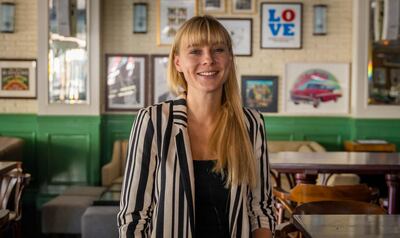
Monique Lindsay, general manager of Reform Social and Grill in The Lakes, Dubai, decided to take a different approach as the restaurant reopened after the Covid-19 shutdown, scrapping bookings altogether. "When we reopened, we had the 30 per cent capacity rule, which went up to 50 per cent," she explains. "I decided not to take any bookings, simply because it's obviously not at full capacity and there are limited tables in the restaurant and I didn't want to upset anybody."
Lindsay says taking bookings meant she would need to ensure a table was free at least 15 minutes or so before a customer arrived, but walk-in customers may see those empty tables and question why there is no space for them. Given the community nature of Reform, Lindsay says she felt a first-come, first-served approach was better to avoid customer disappointment and the restaurant missing out owing to no-shows.
“Everybody understood when we explained to them,” she says. “They were open to just turning up.”
Now things are getting back to full capacity, Reform has started to take bookings again, and has experienced a few not turning up. “When you have a no-show, there’s an impact," she says. "You’ve prepared the ordering levels for the food, then you have wastage. You've prepped staffing levels because you know how many guests are coming, so you have accommodated to make sure the guest has a wonderful time at your restaurant.”
Like Voelzing, Lindsay says Reform calls all of its customers on the day of reservation to reconfirm, and notes how easy it can be to forget a booking you made well in advance, especially during a global pandemic. But what might seem like a small slip of the mind for a diner reservation can have a huge impact on a business.
“If restaurants do book themselves completely out, which I do know happens in Dubai as you are often told a restaurant is fully booked, you could end up turning customers away for nothing,” she says. “I don't think customers fully know the implications of what not just calling to cancel can do.”
The good news is, however, that people seem to be wanting to eat out as restrictions across the country continue to ease. Both Lindsay and Voelzing report a steady return of diners. "I think it's been very positive," Voelzing says. "We've been very pleased with the turnout of guests we've had. But there's still a long way to go."
